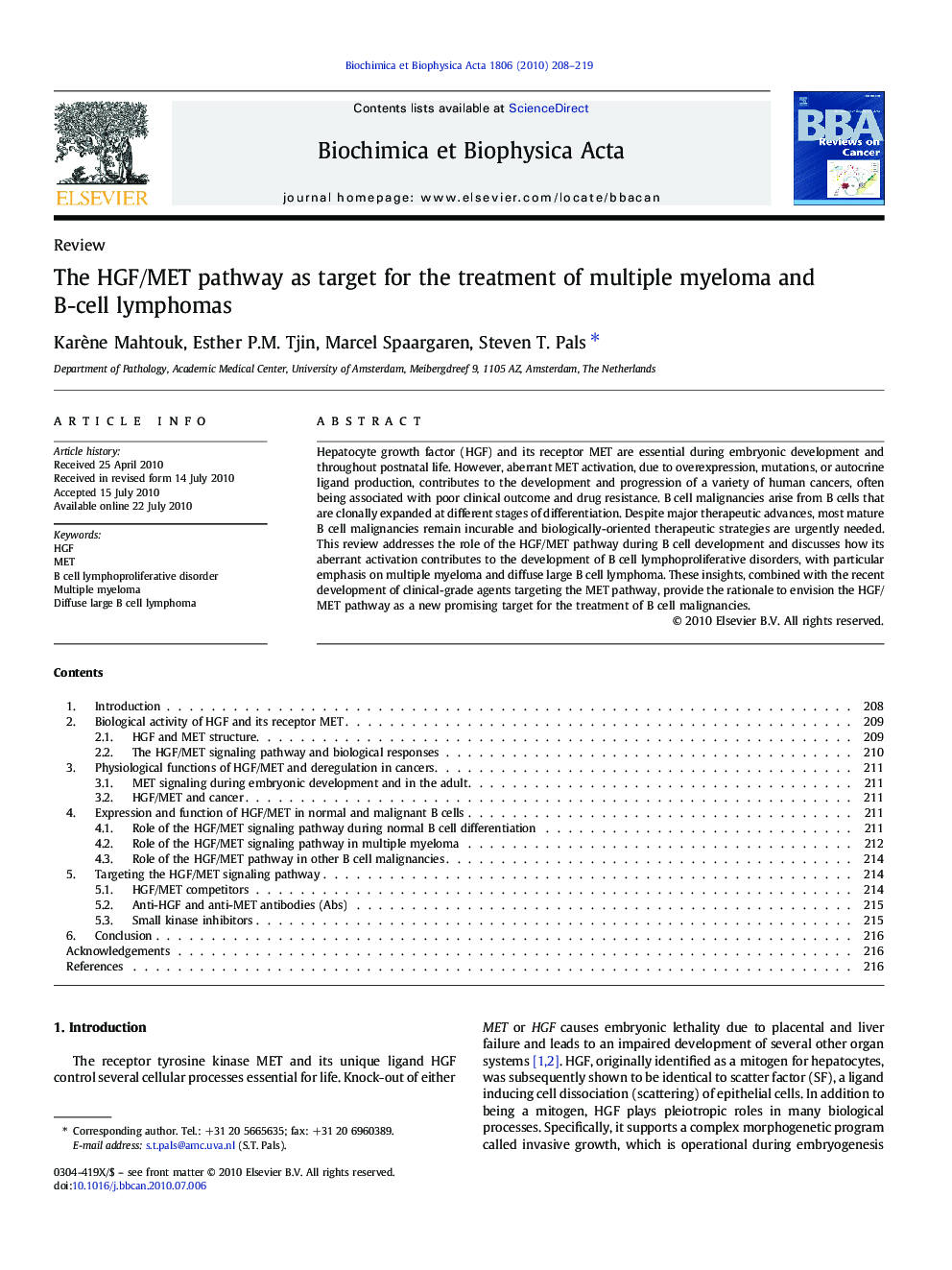| Article ID | Journal | Published Year | Pages | File Type |
|---|---|---|---|---|
| 2101015 | Biochimica et Biophysica Acta (BBA) - Reviews on Cancer | 2010 | 12 Pages |
Hepatocyte growth factor (HGF) and its receptor MET are essential during embryonic development and throughout postnatal life. However, aberrant MET activation, due to overexpression, mutations, or autocrine ligand production, contributes to the development and progression of a variety of human cancers, often being associated with poor clinical outcome and drug resistance. B cell malignancies arise from B cells that are clonally expanded at different stages of differentiation. Despite major therapeutic advances, most mature B cell malignancies remain incurable and biologically-oriented therapeutic strategies are urgently needed. This review addresses the role of the HGF/MET pathway during B cell development and discusses how its aberrant activation contributes to the development of B cell lymphoproliferative disorders, with particular emphasis on multiple myeloma and diffuse large B cell lymphoma. These insights, combined with the recent development of clinical-grade agents targeting the MET pathway, provide the rationale to envision the HGF/MET pathway as a new promising target for the treatment of B cell malignancies.
